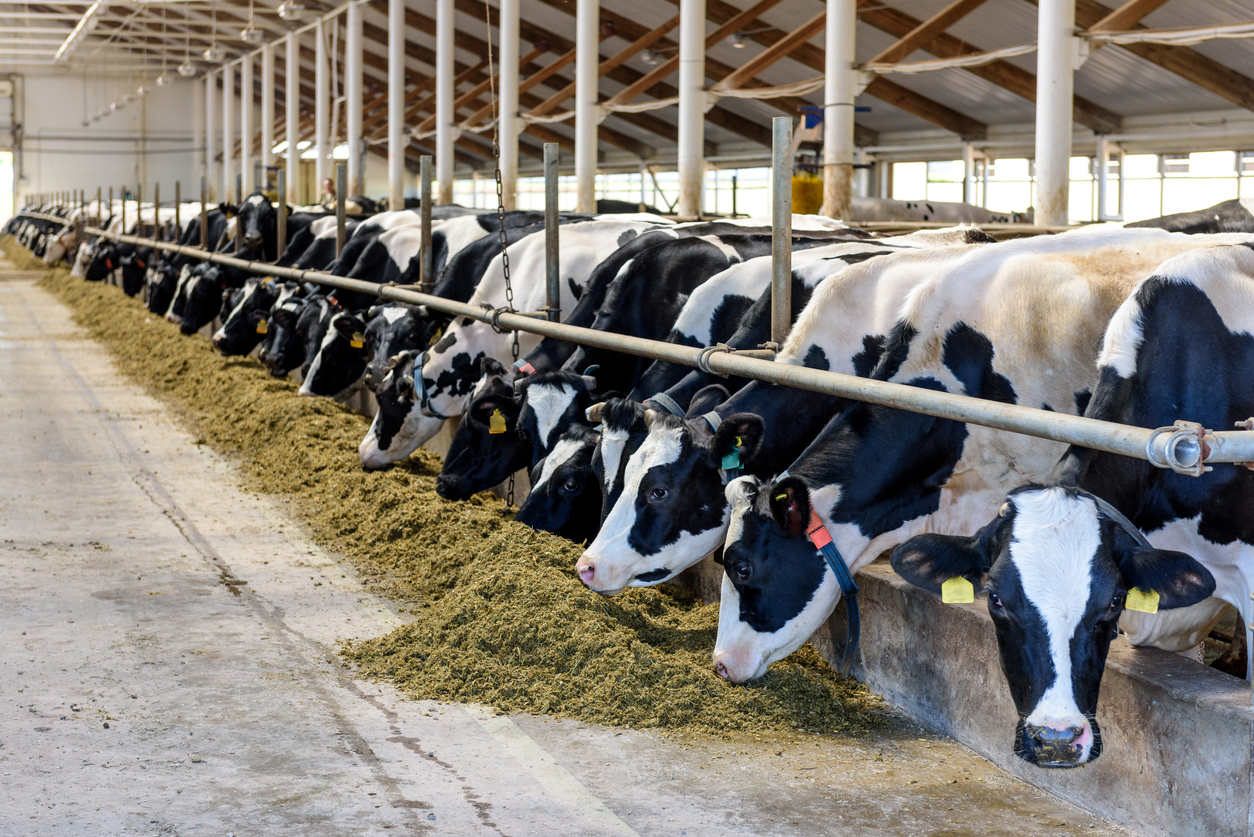How to Export Fermented Milk Products from Nigeria: A Complete Guide
How to Export Fermented Milk Products from Nigeria: A Complete Guide
Nigeria is home to a large number of ethnic groups, each with their own food traditions. Fermented milk products are popular in Nigeria and are eaten by people of all ages.
Fermented milk products are made by inoculating cow’s milk with bacterial cultures, which change the natural sugars in the milk to lactic acid which gives it a tangy taste. The bacteria also breaks down the fats in the milk, making it easier for people to digest. These fermented milk products can be consumed fresh or they can be cooked to create distinct dishes that have their own flavors and benefits. Here, are some ways to export your favorite Nigerian fermented milk products.
Fermented milk products around the world
There are many different fermented milk products around the world. For example, in East Africa, fermented milk products are made by inoculating cow’s milk with bacterial cultures that give it a tangy taste. In South Africa, you will find fermented milk products made from raw cow’s milk, while in India, you will find products made from buffalo’s milk.
All of these products are made by inoculating cow’s milk with bacterial cultures which change the natural sugars in the milk to lactic acid which gives it a tangy taste. The bacteria also break down the fats in the milk making it easier for people to digest.
These fermented milk products can be consumed fresh or they can be cooked to create distinct dishes that have their own flavors and benefits.
Here are some ways to export your favorite Nigerian fermented milk products.
1. Koubo
Koubo is a fermented cheese product made by inoculating cow’s or goat’s milk with bacteria cultures. This process changes the natural sugars in the milk to lactic acid which gives it a tangy taste. The bacteria also break down the fats in the milk, making it easier for people to digest. The fermentation process also results
Fermented milk products in Nigeria
Nigerian fermented milk products are widely consumed by the population. In Nigeria, there are a variety of fermented milk products which can be made from cow’s milk, goat’s milk, or even from the milk of an animal like a sheep or a cow.
Nigerian fermented milk products come in many different forms and can be consumed fresh or cooked into a dish that can be served with a meal. Fermented milk dishes are usually served at breakfast, lunch, and dinner. Nigerian fermented milk dishes vary from region to region and include dishes like Ogi, Fufu, Gari, and Ada.
If you’re interested in exporting Nigerian fermented milk products here are some ways you can do it.
What are fermented milk products?
Fermented milk products are made by inoculating cow’s milk with bacterial cultures, which change the natural sugars in the milk to lactic acid which gives it a tangy taste. The bacteria also breaks down the fats in the milk, making it easier for people to digest. These fermented milk products can be consumed fresh or cooked to create distinct dishes that have their own flavors and benefits.
When you’re ready to export your favorite Nigerian fermented milk products, these are some ways you can do it.
Expand Nigeria’s export list
You’ll need to expand Nigeria’s current export list to include fermented milk products. This will allow you to increase your business’s exports and take advantage of international opportunities.
Export to Dubai
Dubai is a popular destination for Nigerian food, so exporting there is a good option for your business.
Start with fresh milk
If you want to export fresh milk, make sure it’s processed before exporting. You may need to follow certain health guidelines or invest in additional machinery if your local processing plant does not meet international standards.
Export your favorite Nigerian milk products
You have many options when exporting fermented milk products. You can choose between exporting
How to make fermented milk products
Fermented milk products are made by inoculating cow’s milk with bacterial cultures, which change the natural sugars in the milk to lactic acid which gives it a tangy taste. The bacteria also breaks down the fats in the milk, making it easier for people to digest. These fermented milk products can be consumed fresh or they can be cooked to create distinct dishes that have their own flavors and benefits.
Here are some ways to export your favorite Nigerian fermented milk products.
First, you need to make your fermented milk product. You can make your fermented milk product with cow’s milk or goat’s milk. The process for making fermented milk products is simple: you inoculate cow’s milk with bacterial culture, including Lactobacillus acidophilus, Streptococcus thermophilus, and Lactobacillus bulgaricus.
Then, you mix in some sugar and salt and keep the mixture warm for about an hour and a half. You can add some vanilla extract and almond extract for extra flavor and mix in some chopped nuts like walnuts, almonds, and cashews for added texture.
Finally, you need to package your product in clean containers with tight-fitting lids
Types of Nigerian fermented milk products
There are many types of traditional Nigerian fermented milk products. Some of the most popular ones are Burukutu, Gari, and Kajuru.
Burukutu is a fermented milk product made from cow’s milk. It has a sour taste and is often served with a meal. Gari is a fermented milk product made from cassava roots and has a sweet taste. Kajuru is a fermented milk product made from maize and is consumed to increase one’s appetite.
There are many other fermented milk products that you can export from Nigeria based on your tastes and budget.
Why export fermented milk products from Nigeria?
Fermented milk products are popular in Nigeria, and the country has a long history of producing these products.
Fascinatingly, Nigerians will eat fermented milk products at any time of day, to boost their nutrition intake or as a side dish. If you’ve got a favorite Nigerian fermented milk product, there are ways to export it.
There are three ways to export fermented milk products from Nigeria:
1) Export to other African countries
2) Export to the U.S.
3) Export to other European countries
Steps for exporting Nigerian fermented milk products to your country or region
1. First, you need to make sure the milk is clean. The milk should be cold and fresh, and free of any contaminants.
2. Next, you’ll need to make the milk basic by increasing the pH level to around 5.5-6.5 by adding lime juice or vinegar, then heating it up to 85 degrees Celsius for 10 minutes.
3. Now, you can add the lactic-acid bacteria culture into the milk to encourage the fermentation process. If you are adding kefir grains, stir them in.
4. Once you’ve stirred in the bacterial culture, cover the milk and let it sit at room temperature overnight or for around 12 hours.
5. Once it has fermented, you can either drink it as is or cook with it as desired.
6. If you want to export Nigerian fermented milk products to your country, make sure you comply with regulations on importing food products and containers into your region.
section 5. Process for exporting Nigerian food
Step 1: Choose your products
Step 2: Choose your export mode
Step 3: Choose your shipping method
Step 4: Choose your packaging
Step 5: Process for exporting Nigerian food
Step 5: Process for exporting Nigerian food
Step 6: Submit your application to the FDA
Step 7: Checklist of things to do before shipping your product
section 6. Conclusion
The fermentation process changes the natural sugars in the milk to lactic acid, giving it a tangy taste. The fermentation also breaks down the fats in the milk, making it easier for people to digest.
Milk items are often eaten fresh or cooked into dishes that have their own flavors and benefits. There are many ways to export your favorite Nigerian fermented milk products.








LEAVE A COMMENT
You must be logged in to post a comment.